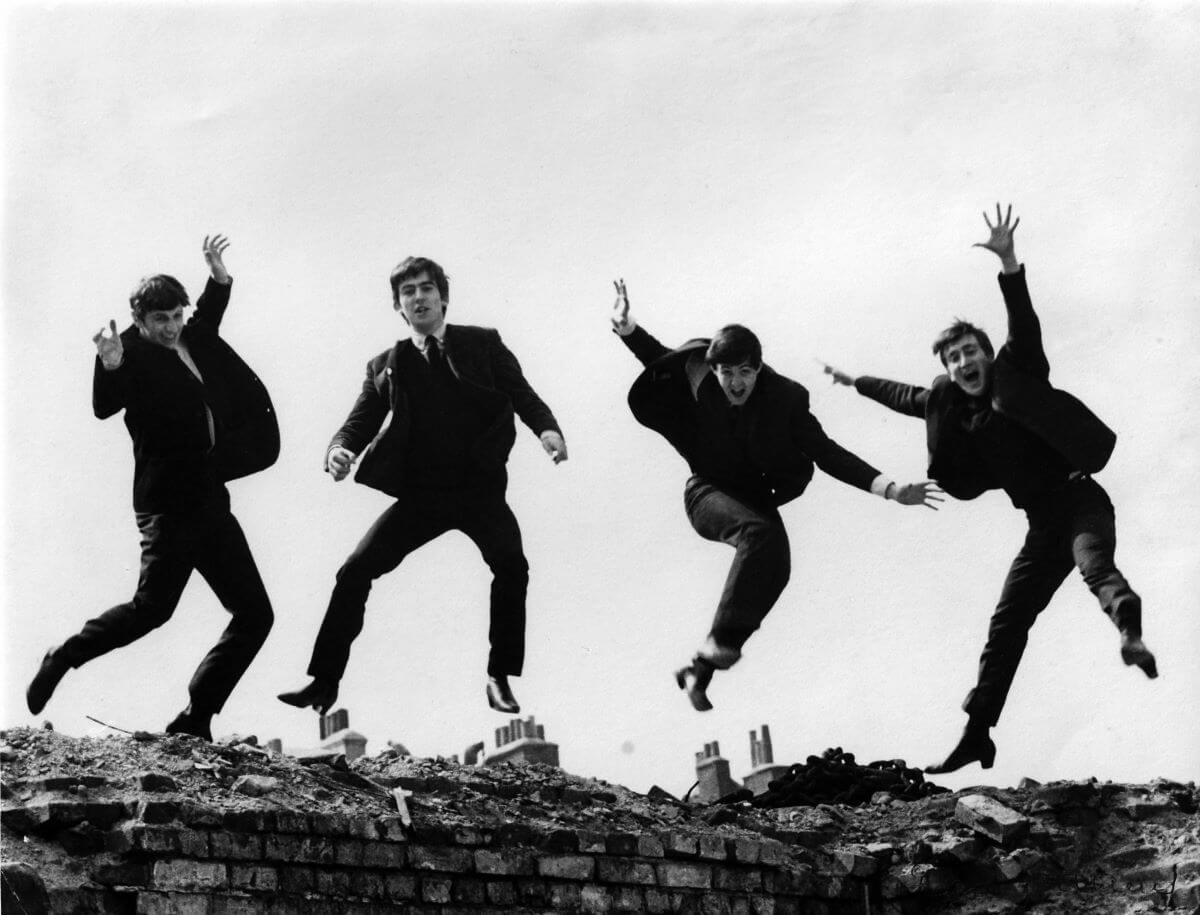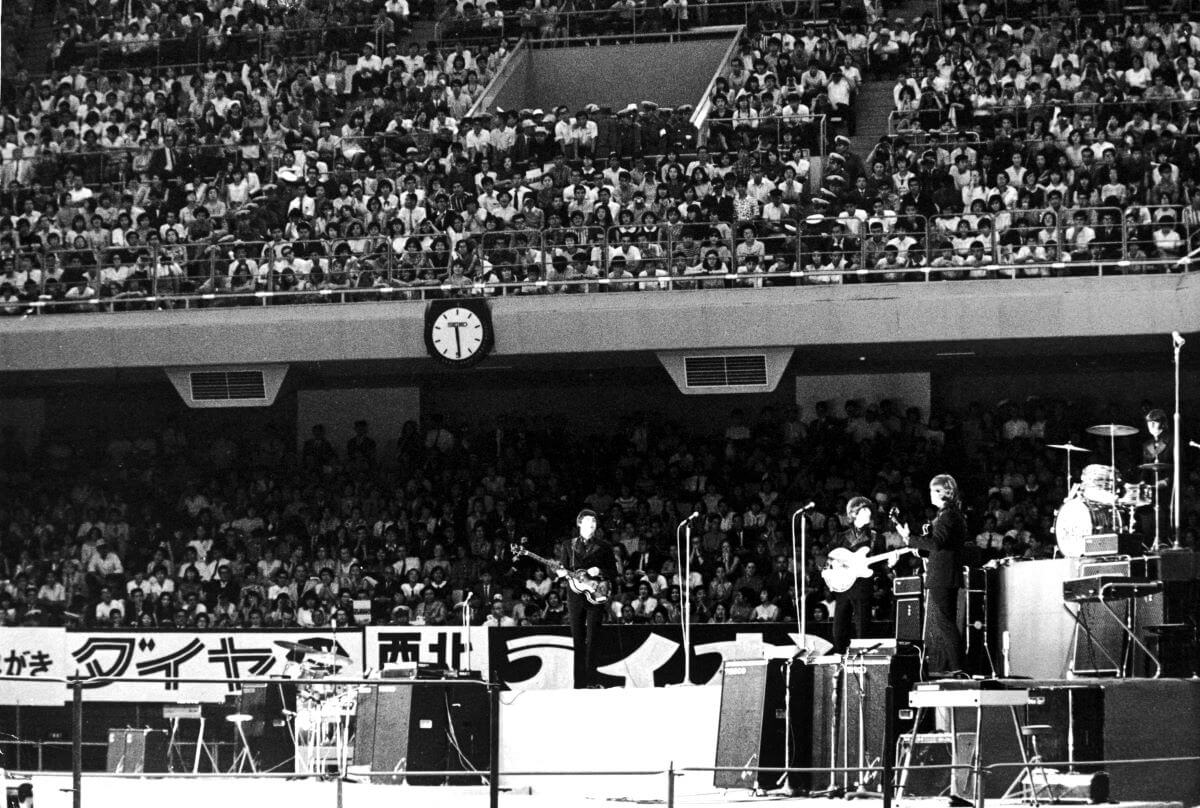
The Beatles Realized They Had to ‘Get Their Act Together’ When They Finally Could Hear Themselves Play Live
During The Beatles’ touring years, they rarely could hear how they sounded live. The band played to large audiences who screamed all the way through their shows; they could hardly even hear their own instruments, let alone their bandmates’. They often complained about this, but when they finally played a show to a quiet audience, they didn’t like what they heard.
The Beatles did not like what they heard while playing a live show
In 1966, The Beatles traveled to Japan on their tour. They had recently received death threats, which the Japanese police took very seriously. They confined the band to their hotel and closely monitored the audience at the concerts.
“There were 3,000 police for 10,000 fans,” road manager Neil Aspinall said in The Beatles Anthology. “The police were all over the place, keeping them under control.”
The show was far quieter than what the band had experienced before.
“Peeping from behind the stage to watch the place fill up, we saw police walk in from either side and fill the whole of the front row, upstairs and downstairs. After them, the crowd was allowed to come in,” Paul McCartney said. “They were very well behaved compared to what we’d seen of Western crowds, but they seemed to enjoy it.”

Because the audience was not screaming the entire show, the band could actually hear themselves play. They didn’t like what they heard.
“For the first time in a long while the audience could hear,” Aspinall said. “There was no loud screaming, which came as a surprise: the band suddenly realized they were out of tune and they had to get their act together. The second show was pretty good — they had got it together by then — but the first one, in the afternoon, was a bit of a shock.”
The Beatles thought not being able to hear themselves live made them worse performers
The Beatles’ out-of-tune playing proved correct something they had feared about their live performances: touring was making them worse. Ringo Starr believed their touring schedule was harming their talent.
“It was wrecking our playing,” he said, per The Beatles: The Authorized Biography by Hunter Davies. “The noise of the people just drowned anything. Eventually I just used to play the off beat, instead of a constant beat. I couldn’t hear myself half the time, even on the amps, with all the noise.”
He explained that because they knew nobody could hear them, they sometimes could even pretend to sing.
“No one eventually enjoyed touring,” Starr said. “You can’t really. Once you’ve got to manufacture it, it doesn’t work. You’ve got to give to receive. Some nights we’d feel it had been terrible. We didn’t give anything. That was when we decided we should give it up, before others started disliking it as well.”
The band stopped touring in 1966
By 1966, The Beatles decided they’d had enough of touring. They played the last show of their touring career at San Francisco’s Candlestick Park. According to George Harrison, who had grown particularly weary of live shows, the concert came as a relief.
“There was a certain amount of relief after that Candlestick Park concert,” he told Rolling Stone. “Before one of the last numbers, we actually set up this camera — I think it had a fisheye, a very wide-angle lens. We set it up on the amplifier, and Ringo came off the drums, and we stood with our backs to the audience and posed for a photograph, because we knew that was the last show.”


